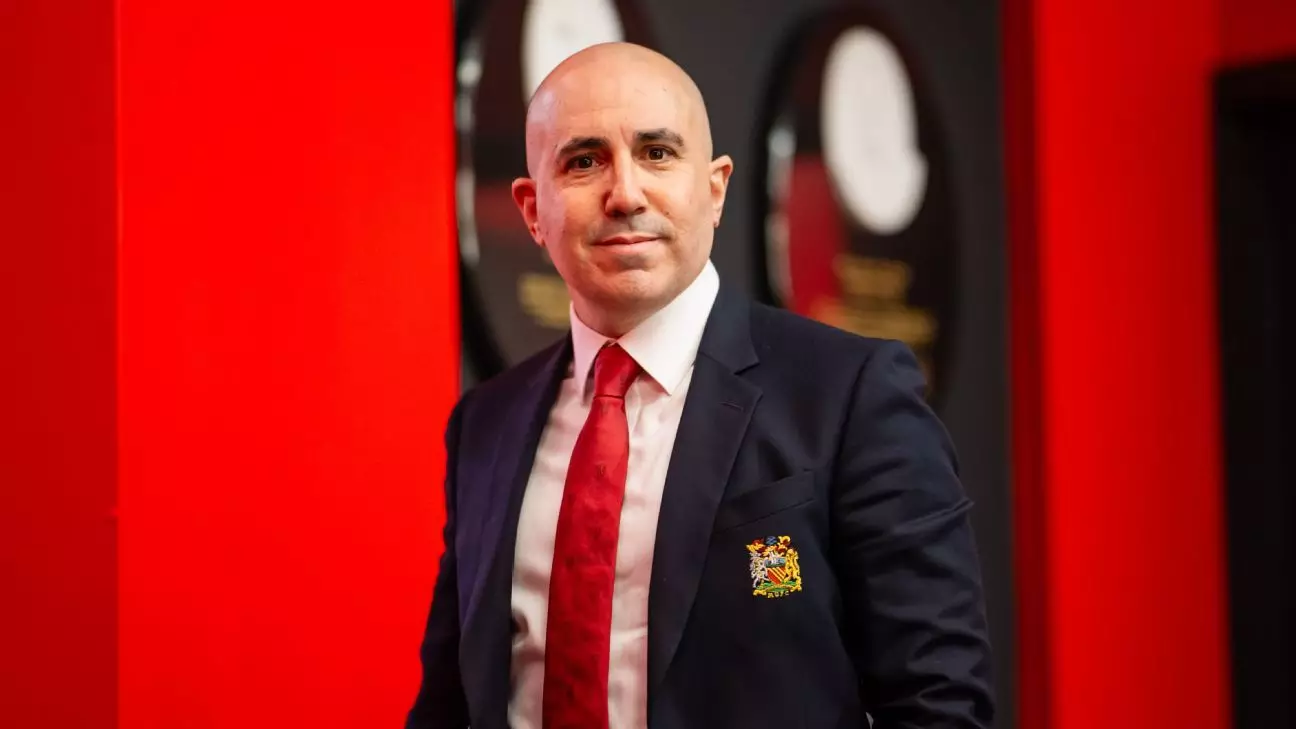In a significant move, Manchester United has appointed Ruben Amorim as the new head coach, a decision that reflects the club’s ambition to reclaim its status at the pinnacle of both domestic and European football. With a start marred by a 1-1 draw against Ipswich Town, Amorim leans into a formidable task: revitalizing a squad currently struggling in the lower half of the Premier League standings. His inaugural match at Old Trafford awaits against Bodo/Glimt in the Europa League, a stage that could offer the new coach an opportunity to ignite a much-needed spark within the team.
Omar Berrada, the CEO of Manchester United, has articulated a clear vision for the club’s future, emphasizing a commitment to competitiveness within both the men’s and women’s divisions. Acknowledging the tough terrain ahead, he stated, “We are delighted to have appointed Ruben Amorim as head coach of our men’s team.” This proclamation underscores the management’s ongoing effort to restore Manchester United to its former glory as a continental powerhouse. However, there is an underlying admission of the challenges that lie ahead, given the team’s disappointing start and recent managerial turnover.
Despite the optimism surrounding Amorim’s arrival, reports indicate that the club may be constrained by a tighter transfer budget as they navigate compliance with the Premier League’s Profit and Sustainability Rules. This development follows a series of cost-cutting measures since Sir Jim Ratcliffe’s minority stake acquisition. The strategic focus has begun to pivot towards financial realism, as seen in Berrada’s comments about ongoing redundancies and the financial implications of sacking Erik ten Hag and his staff. United’s next financial report is expected to shed light on these transitions and their accompanying costs.
Berrada also discussed the dual objectives of maintaining competitiveness on the pitch while ensuring adherence to fiscal regulations. He highlighted the club’s success in implementing cost-cutting measures, pulling back from significant financial losses as reported in their latest fiscal results. The adjusted net loss of £349,000 for the first quarter of fiscal 2025 stands in stark contrast to the £8.6 million loss from the previous year, showcasing a more sustainable financial trajectory. Yet, while revenue did see a decline of 9% to £143.1 million, the club’s projections remain cautiously optimistic.
While the appointment of Ruben Amorim represents a fresh chapter for Manchester United, the road ahead is fraught with challenges. Restoring the club’s legacy and achieving its ambitious targets in such a competitive landscape will require not only immediate results on the pitch but also a long-term vision that balances sporting success with financial prudence. As the club navigates these complexities, the synergy between Amorim’s coaching philosophy and the management’s strategic reforms will be pivotal in shaping Manchester United’s destiny in the years to come.

